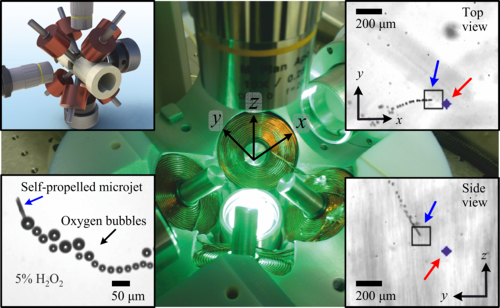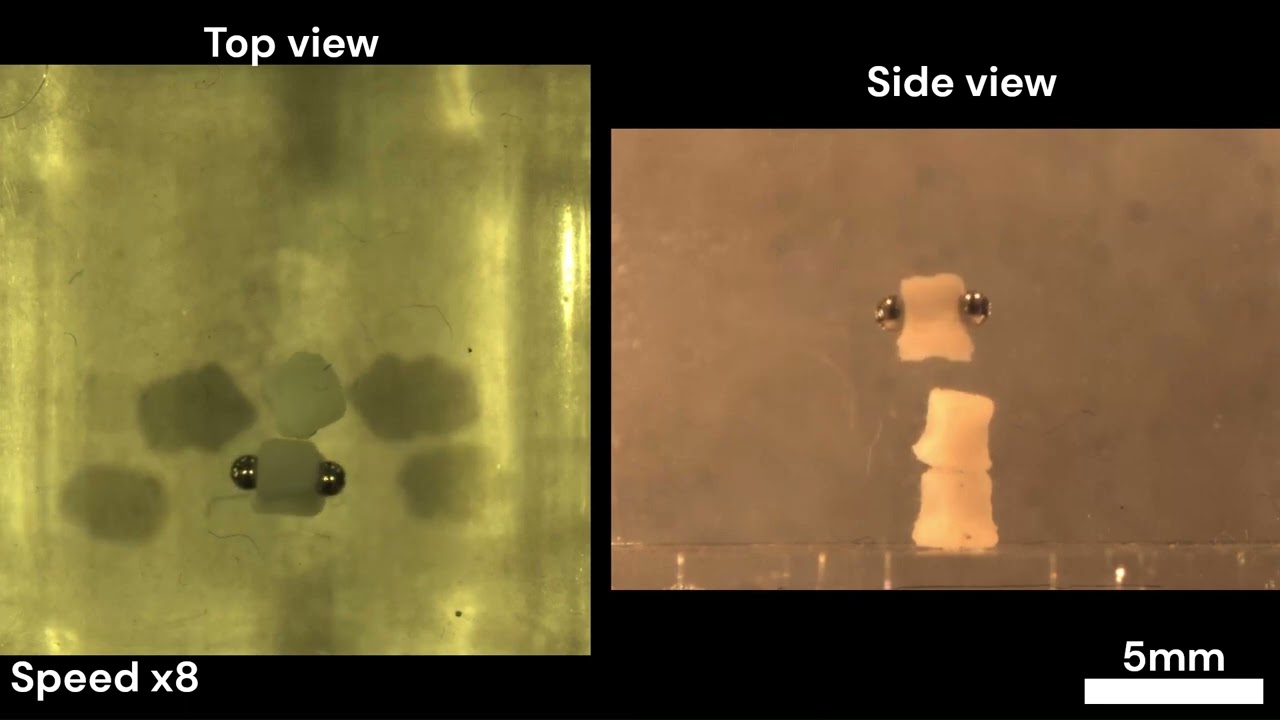Imagine you need surgery somewhere inside your body. However, the part that needs surgery is very difficult to reach for a surgeon. In the future, a couple of robots smaller than a grain of salt might go into your body and perform the surgery. These microrobots could work together to perform all kinds of complex tasks. “It’s almost like magic”, says Franco Piñan Basualdo, corresponding author of the publication.
Researchers from the University of Twente successfully exploited two of these one-millimetre-sized magnetic microrobots to perform several operations. Like clockwork, the microrobots were able to pick up, move and assemble cubes. Unique to this achievement is the 3D environment in which the robots performed their tasks.
Controlling Magnetic Robots
Overcoming this presented a considerable challenge. Similar to regular magnets that adhere when in close proximity, these minute magnetic robots exhibit a comparable behavior, limiting their approach before sticking together. However, researchers at the Surgical Robotics Laboratory turned this natural attraction into an advantage. Utilizing a tailored controller, the team not only directed the individual robots but also managed their interactions. These biocompatible microrobots, controllable in challenging and enclosed environments, hold promise for biomedical studies and applications. Piñan Basualdo emphasizes their ability to remotely manipulate biomedical samples without contamination, potentially enhancing existing procedures and paving the way for new ones.

More Information
Dr. Franco Piñan Basualdo is a postdoctoral researcher at the Surgical Robotics Laboratory. His research interests include micro-robotics, non-contact control, swarm robotics, active matter, microfluidics, and interfacial phenomena.
This research was performed at the Surgical Robotics Laboratory. Prof. Sarthak Misra, head of the lab, focuses on developing innovative solutions for a broad range of clinically relevant challenges, including biomedical imaging, automation of medical procedures, and the development of microrobotic tools.
The research was performed in the framework of the European RĔGO project (Horizon Europe program), which aims to develop an innovative set of AI-powered, microsized, untethered, stimuli-responsive swarms of robots. Their findings were published in a paper, entitled ‘Collaborative Magnetic Agents for 3D Microrobotic Grasping’, in the scientific journal Advanced Intelligent Systems. The publication is open-access and can be found online.
To access the whole article, click here.




